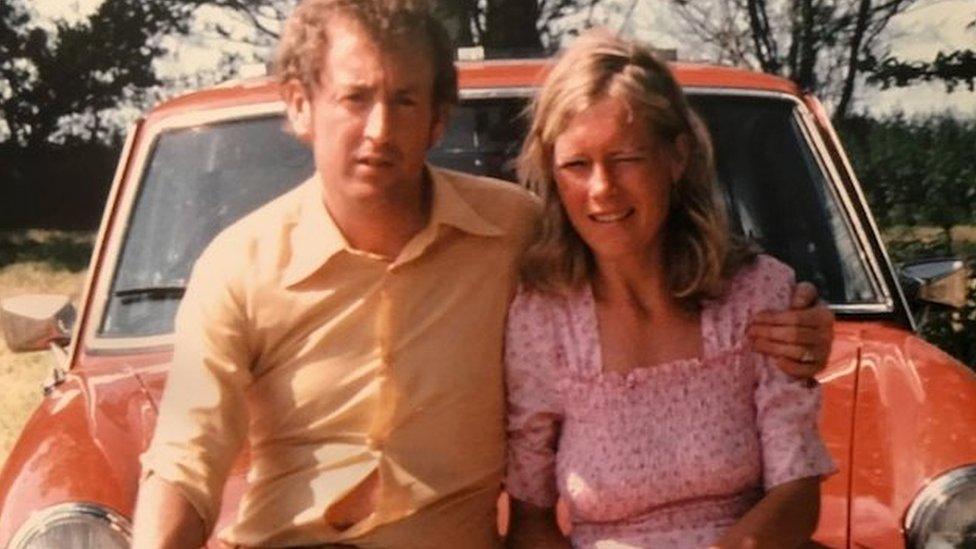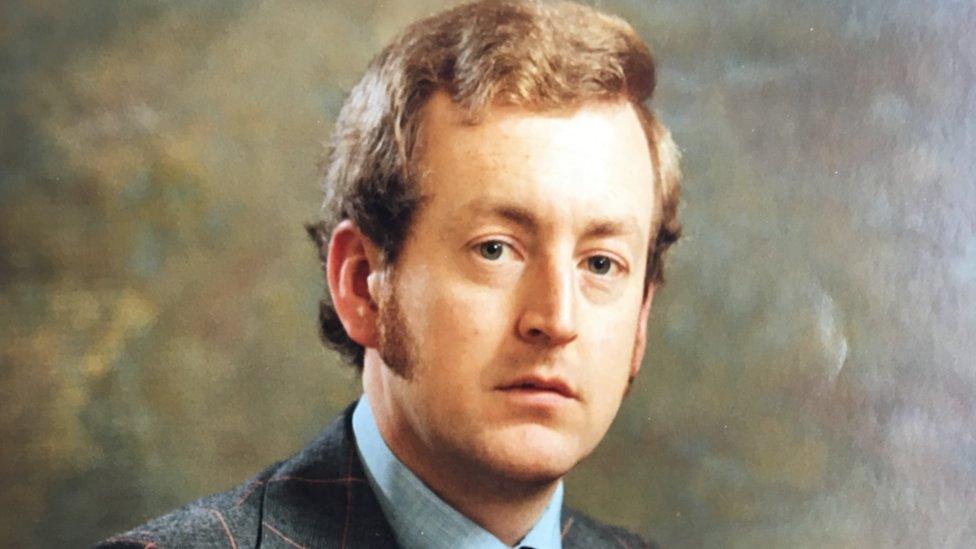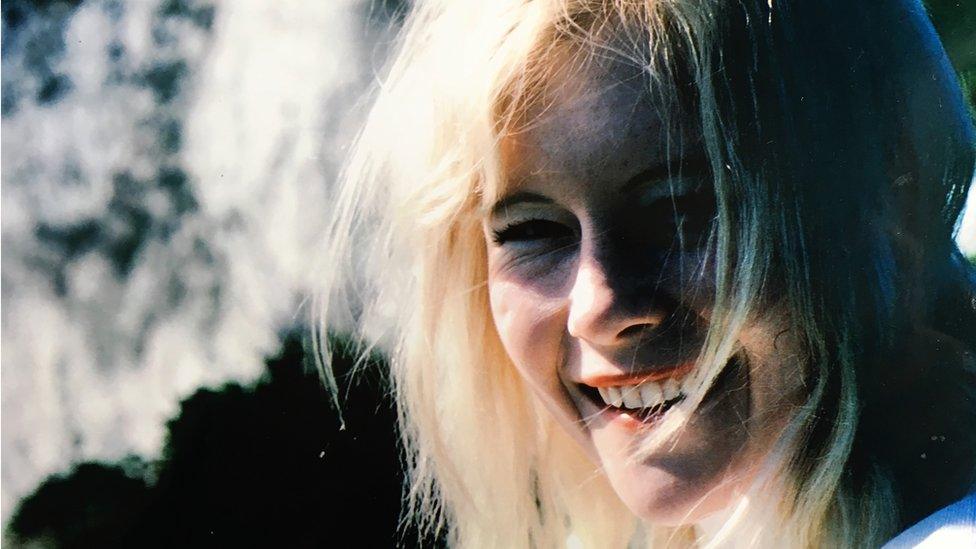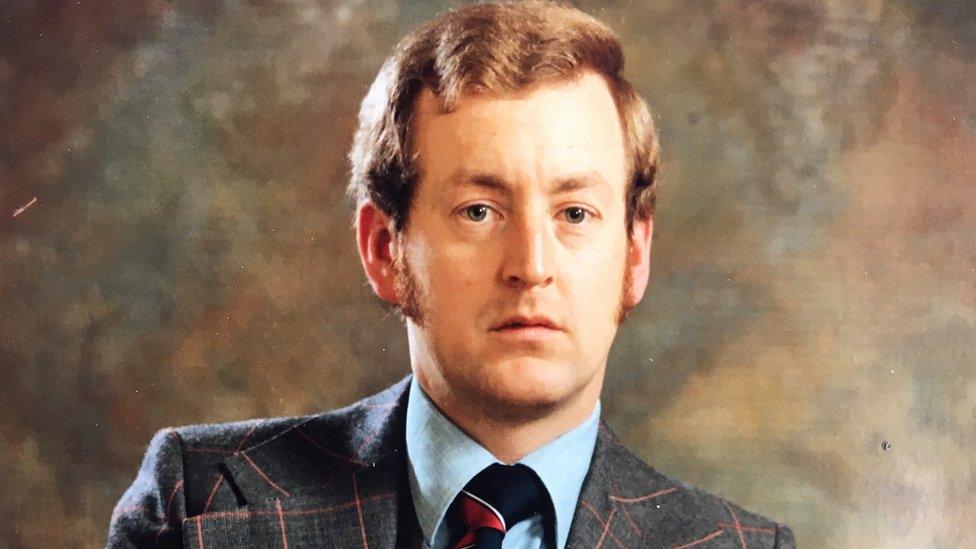Carole Packman murder: Russell Causley to be released from prison
- Published

Russell Causley married his wife Carole Packman in 1965
Russell Causley, the murderer who was questioned at the UK's first public parole hearing, is set to be released from prison.
The 79-year-old murdered wife Carole Packman in Bournemouth in 1985 but has always refused to reveal the whereabouts of her body.
The Parole Board said it was satisfied that Causley was suitable for release.
Justice Secretary Dominic Raab said he was looking at whether to ask for the decision to be reconsidered.
The Parole Board's conclusion comes after the hearing was held last month, when Causley told judges it was his ex-lover Patricia Causley, whose name he took, who carried out the killing.
Ms Causley was never tried over the killing. Under questioning, Causley agreed that he was a "habitual liar".
Former aviation engineer Causley claimed he burned Mrs Packman's body in a fire, in his garden, that lasted "three or four days".
Ms Packman's daughter Samantha Gillingham, from Northamptonshire, said she was "disappointed" at the decision and branded the parole process a "tick-box exercise".
"Of course he was going to get released," she added.
"It is what it is and there's nothing that I can do about it."
But she said she still hoped to meet her father, after decades of asking to confront him about her mother's disappearance.

Russell Causley was jailed for fraud after a botched attempt to fake his own death
The Parole Board said it examined more than 600 pages of material and considered the circumstances of Causley's offending and time on licence.
It also looked at the progress he had made while in custody, and the evidence presented at hearings, before concluding it was satisfied he was "suitable for release".
In an official note, external, the Parole Board also said the panel reviewed professional reports that identified a low risk of further offending and it was advised by the witnesses that Causley would present a low risk of harm to the public.
The panel examined the release plan provided by his probation officer and "weighed its proposals against assessed risks".
It concluded that "this plan was robust enough to manage Mr Causley in the community at this stage".
Following the decision, Justice Secretary Dominic Raab said Causley was "a calculated killer" who "callously prolonged the suffering of Carole Packman's loved ones by refusing to reveal the whereabouts of her body".
"I am carefully looking at whether to ask the Parole Board to reconsider this decision," he added.
Causley was previously released in 2020 after serving more than 23 years in custody, but was recalled to prison a year later for breaking his licence conditions.
He was not in his approved accommodation on one night and failed to answer calls from his probation officer.
Mrs Packman's family previously said they feared Causley had used his release as an opportunity to visit her body and have since campaigned for him to remain behind bars.

Carole Packman disappeared in 1985, aged 40, and her body has never been found
The Parole Board noted Causley previously admitted responsibility but he now maintained he was innocent of the murder of his wife, although he did accept he had disposed of her body.
Causley's release is subject to a number of conditions including residing at a designated address and disclosing developing relationships.
He must also "be of good behaviour" and will be required to submit to an enhanced form of supervision or monitoring, including signing-in times, GPS tagging and a specified curfew.
The Parole Board said the panel could only release Causley if it was satisfied that it was no longer necessary for the protection of the public that he remained confined in prison.

Follow BBC South on Facebook, external, Twitter, external, or Instagram, external. Send your story ideas to south.newsonline@bbc.co.uk, external.
Related topics
- Published3 November 2022

- Published4 October 2022

- Published20 September 2022

- Published24 August 2022

- Published4 August 2022

- Published3 August 2022
